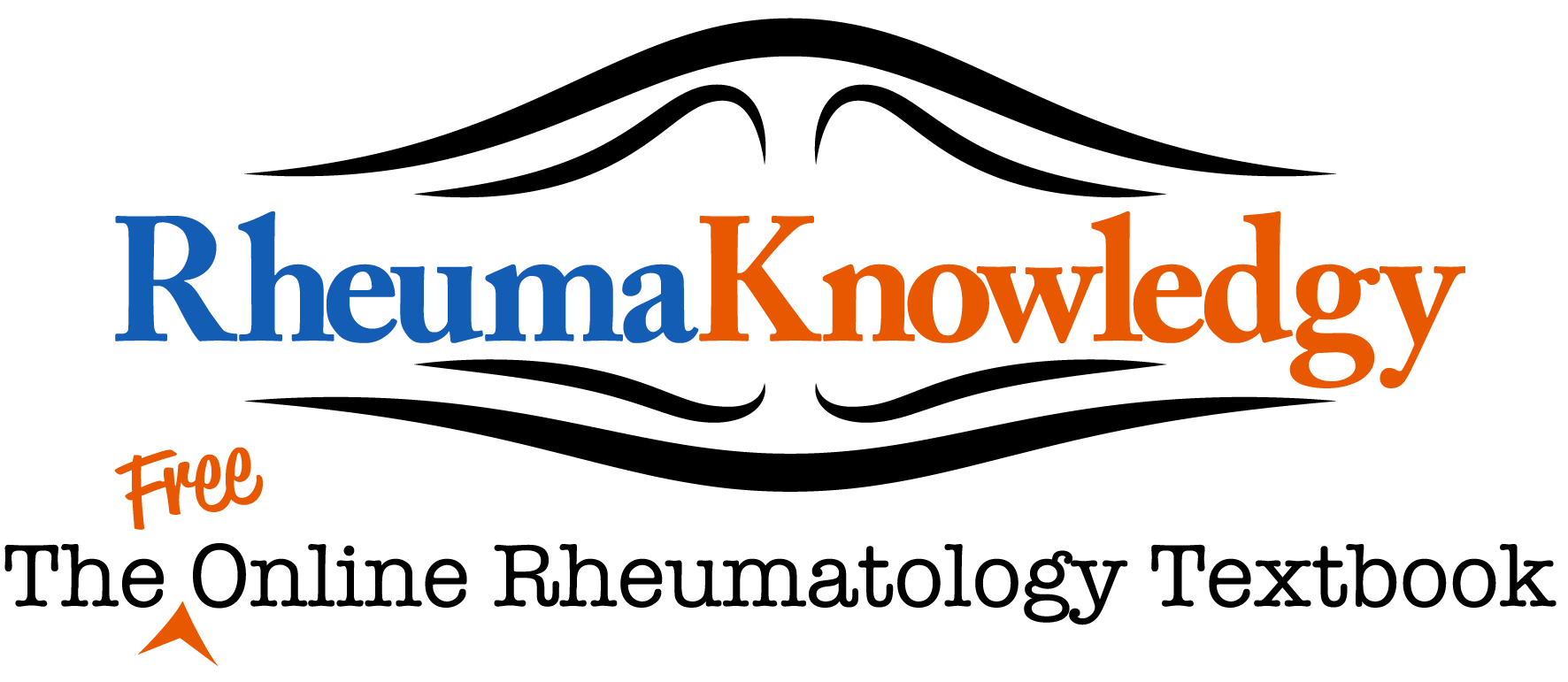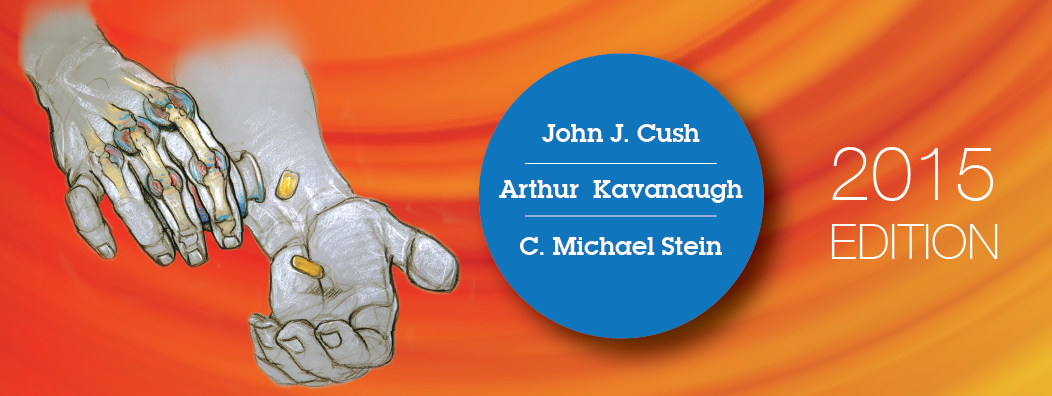Parasite-Related Arthropathy
Last updated: November 4, 2014
ICD-9 Code: 711.80.
Definition: The onset of an acute reactive inflammatory arthropathy, spondyloarthropathy (SpA), and, less commonly, myositis or vasculitis in the setting of an acute or chronic parasitic infection.
Etiology: Parasites are a rare cause of reactive arthritis, but it is more common in environments where these organisms commonly cause human disease. Parasites associated with this syndrome include Strongyloides stercoralis, Giardia lamblia, filariasis; Schistosoma, and Taenia saginata. Rare reports have occurred with infections owing to Toxocara, Toxoplasma gondii, Echinococcus, Dirofilaria, Loa loa, Onchocerca, Cyclospora cayetan, and Cryptosporidia.
Demographics: These events are more common among those who reside in (or visit) the tropics or areas of epidemic parasitic infections.
Cardinal Findings: After a known/identifiable infectious event, several modes of presentation have been seen and include acute reactive oligoarthritis, monarthritis, SpA, sacroiliitis, or, less commonly, asymmetric polyarthritis or rheumatoid-like polyarthritis.
Uncommon Findings: It may cause myositis (e.g., Toxoplasma, Trichinella, Taenia, Leishmania, Microsporidia, and Echinococcus infection) or infectious/parainfectious vasculitis (especially Schistosoma, L. loa, Ascaris lumbricoides, Pneumocystis, Trypanosomiasis, Toxocara, Trichomonas, Trichinella, and Gnathostoma).
Complications: A Mazzotti reaction occurs with treatment of onchocerciasis (filarial infection). Patients manifest arthralgia, fever, rash, lymphadenopathy, hypotension and tachycardia , possibly from eosinophil degranulation in response to killed organisms.
Diagnostic Tests: Eosinophilia is found in some but not all. Microbiologic identification is necessary for diagnosis and treatment.
Diagnostic Criteria (proposed): Must have more than six of the following: inflammatory arthropathy; residence in or travel to epidemic area; no radiographic changes; identification of parasite; lack of response to standard antiinflammatory therapy; good response to antiparasite therapy; inflammatory synovial fluid; elevated ESR; and eosinophilia.
Keys to Diagnosis: Parasite-induced arthritis should be suspected whenever there is an acute onset arthritis, enthesitis, myositis, or vasculitis in endemic areas or developing countries or in those who have recently traveled to such regions. Diagnosis is based on microbiologic or immunologic identification of infection with a known pathogen.
Therapy: A poor response to therapy with NSAIDs or prednisone should raise suspicion of a parasitic reactive process in a susceptible host. Most will require eradication of the parasite with an appropriate agent.
BIBLIOGRAPHY
Bocanegra TS, Vasey FB. Musculoskeletal syndromes in parasitic diseases. Rheum Dis Clin North Am 1993;19:505–513. Peng SL. Rheumatic manifestations of parasitic diseases. Semin Arthritis Rheum 2002; 31:228–247.


